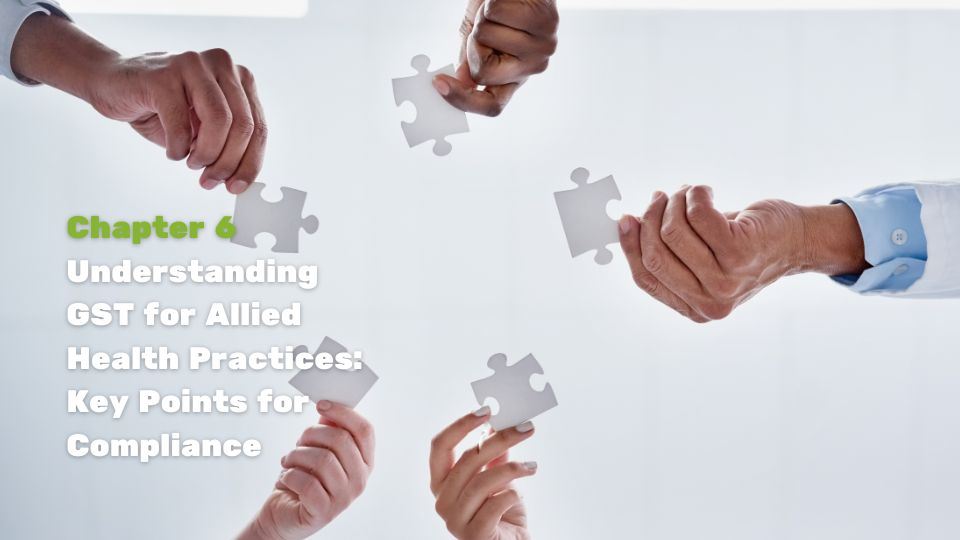
Understanding GST is critical for business compliance but particularly complicated for Allied healthcare practices.
Many practices are multi-modal, meaning not all services are GST-free, and getting this wrong can lead to serious compliance issues with the ATO. Here’s what you need to know:
The majority of medical services provided by registered practitioners are GST-free. The ATO has specific guidelines on what qualifies as GST-free under the Health Services exemption. It’s essential to consult their comprehensive list to ensure compliance. One tricky area is when multiple practitioners are involved in a patient’s care. Small nuances, such as the type of treatment and the practitioner’s registration, can change the GST status of the service, so careful consideration is needed.
While many allied health services are GST-free, some—like massage therapy—are subject to GST unless specific exemptions apply. It’s crucial to assess each service individually, as certain situations may allow these services to be GST-free. Ensuring accurate classification can prevent costly errors.
Many medical aids and appliances are GST-free, but only if they meet three strict criteria:
For instance, everyday items sold in many allied health practices, such as foam rollers, massage balls, strapping tape, and stretch bands, do not typically meet these criteria and are therefore subject to GST. It’s important to carefully assess the GST status of all products sold in your practice to avoid compliance risks.
You can protect your practice from potential financial penalties by staying informed about GST requirements and consulting the ATO’s guidelines.
In 15 minutes we will run you through our 15 point checklist to diagnose whether you paid too much tax last year.